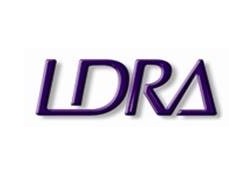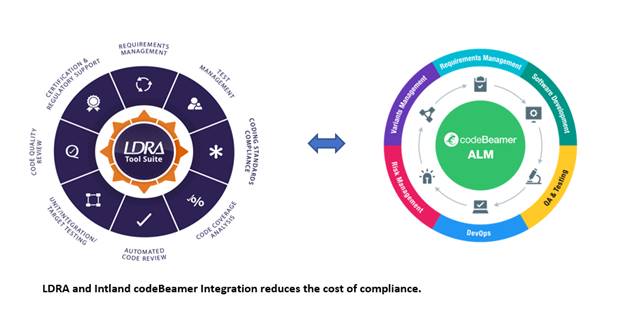LDRA, Intland partner to speed embedded software rollout and verification

LDRA and Intland Software are now partnering to accelerate workflow from requirements through verification, designed for the critical software development domains of automotive, medical device, and aerospace and defense applications.
In addition, the integrated LDRA tool suite and Intland’s codeBeamer ALM product facilitates and reduces the cost of compliance with critical embedded functional safety and security software standards such as DO-178B/C in avionics, ISO26262 in automotive applications and IEC 62304 in medical devices.
“Industry demands safe and secure code in these critical devices and applications, and this integration helps by enabling rigorous, traceable, and transparent development and verification methods,” said Ian Hennell, operations director, LDRA. “Intland codeBeamer is a rising ALM solution, and as a result, we believe development teams throughout the critical embedded industry will fully leverage this integration package.”
The LDRA/Intland integration is enabled by the LDRA TBmanager Integration Package for Intland codeBeamer. Leveraging this integration and corresponding workflow, developers use Intland codeBeamer in agile development processes to collaboratively manage requirements, quality assurance activities, risks, and operations. The LDRA tool suite links those requirements and activities to the software analysis and verification process. This provides traceability and transparency into––and throughout––the development lifecycle, supporting regulatory audit processes and standards compliance.

At the software analysis level, the LDRA tool suite:
- Helps to identify and eliminate software flaws and vulnerabilities.
- Verifies the code (including coding compliance with standards such as MISRA and CERT) with both in-depth static and dynamic code analysis.
- Expedites the verification process by automating test case generation and execution. Those tests can be run on the host development platform and the actual target hardware, helping to ensure behavioral consistency.
- Analyses structural coverage while providing complete transparency and measurement into the quality of the testing process itself, ultimately showing which code has and has not been tested.
- Augments the test case for even more comprehensive testing. Software verification takes place on either the host development platform or the target hardware, and test results are fed back into codeBeamer ALM.
For developers, the LDRA tool suite/Intland integration saves time and money by accelerating iterative development while enabling requirements change and rapid impact analysis. This highlights specifically which code is affected by requirements changes and links that code to the verification activities and artifacts for automated regression testing. This is particularly important for developers who must comply with––and demonstrate compliance to––standards such as DO-178B/C, ISO 26262, and IEC 62304.
Comment on this article below or via Twitter @IoTGN
